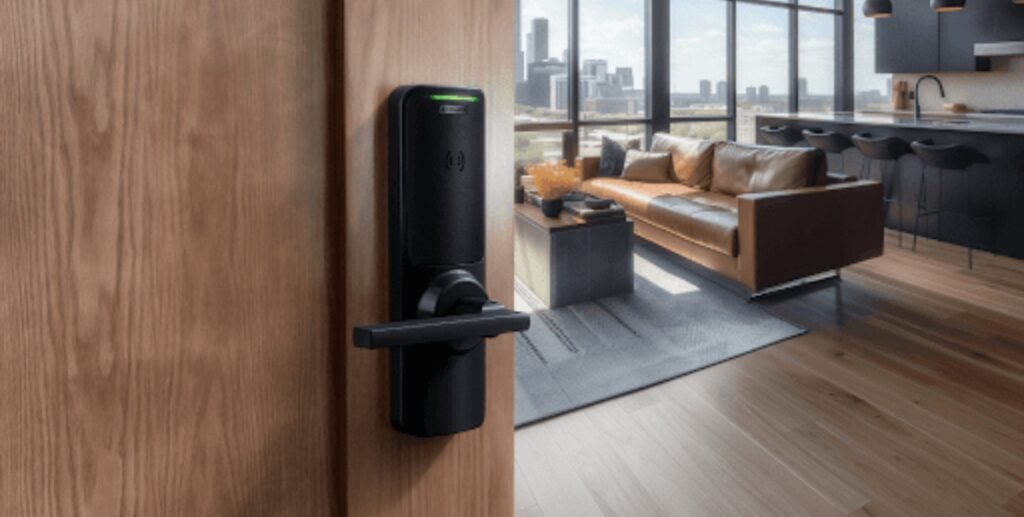Smart Locks: Safeguarding Entries and Your Wallet in Tough Times
In an era where technology seamlessly integrates into the very fabric of our daily lives, smart locks have emerged as a beacon of innovation and security. As economic landscapes become increasingly unpredictable, homeowners and renters alike are seeking solutions that not only protect their homes but also their wallets. Smart locks, with their blend of convenience, security, and economic efficiency, are proving to be a prudent investment in tough times.
The Rise of Smart Locks
The shift from traditional locks to smart locks is driven by a combination of security needs and technological advancements. Unlike conventional locks, which rely solely on mechanical mechanisms, smart locks utilize cutting-edge technology that enables integration with smartphones, smart home ecosystems, and the internet. This evolution ensures that homeowners are better equipped to monitor and control access to their homes remotely.
Security at the Forefront
One of the primary advantages of smart locks is their enhanced security features. With traditional locks susceptible to picking and bumping, smart locks offer a formidable barrier against unauthorized access. Many smart locks come equipped with features such as biometric recognition, two-factor authentication, and temporary access provisions that can be granted or revoked via a smartphone app.
Moreover, the ability to monitor entry logs provides homeowners with detailed insights into who is entering or leaving their home, and at what times. This feature not only enhances security but also adds a layer of accountability, ideal for households with frequent visitors or tenants.
Economic Efficiency
Beyond security, smart locks make economic sense, particularly in challenging financial times. While the initial cost of installing smart locks may be higher compared to traditional locks, the long-term benefits are substantial. Smart locks can often be integrated into broader home security systems, reducing the overall cost of maintaining separate security measures.
Additionally, smart locks offer convenience that can translate into savings. For instance, the elimination of physical keys reduces the need for replacements due to loss or damage, which can add up over time. Some insurance providers might also offer premium discounts to homeowners using advanced security systems like smart locks, providing further financial relief.
Convenience Meets Cost-Effectiveness
The convenience offered by smart locks cannot be overstated. Imagine a scenario where you leave home in a rush and forget to lock the door. Instead of turning back or relying on neighbors, a simple tap on your smartphone takes care of it. Similarly, for families or shared living arrangements, smart locks eliminate the need for multiple copies of keys, making life simpler and more efficient.
In rental properties, smart locks solve the logistical nightmare of changing locks with each new tenant. A digital reset via an app ensures the property remains secure, without the recurring cost of changing physical locks.
Conclusion
In tough economic times, every investment must be scrutinized for its value, and smart locks emerge as a sophisticated, multifaceted investment that pays dividends in security, convenience, and cost-effectiveness. As more individuals prioritize safe, efficient living environments brought to life by technology, smart locks will continue to shine as a pragmatic choice for safeguarding entries—and wallets—against the unpredictability of modern life.
With their ability to adapt to the diverse needs of homeowners, renters, and property managers, smart locks stand out as a testament to how innovation can enhance everyday life while being financially savvy. Whether you’re looking to fortify your home against potential threats or seeking ways to make life more streamlined and cost-efficient, smart locks offer a reliable answer to the challenges of our times.

